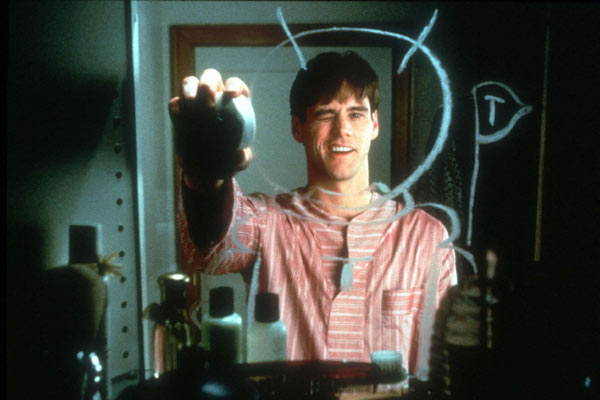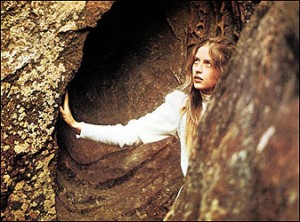 Not even director Peter Weir and screenwriter Andrew Niccol could have guessed just how prescient their well-calibrated 1996 media satire, The Truman Show, would turn out to be. Just 15 years later who could deny that we live life as a reality show, that we’re all extras and well-placed products are the stars, and that cameras, always more cameras, steadfastly search for something with a semblance of reality? What’s most amusing is that the film’s central point, that we are ignorant to what’s around us rather than complicit, has proven to be almost entirely wrong.
Not even director Peter Weir and screenwriter Andrew Niccol could have guessed just how prescient their well-calibrated 1996 media satire, The Truman Show, would turn out to be. Just 15 years later who could deny that we live life as a reality show, that we’re all extras and well-placed products are the stars, and that cameras, always more cameras, steadfastly search for something with a semblance of reality? What’s most amusing is that the film’s central point, that we are ignorant to what’s around us rather than complicit, has proven to be almost entirely wrong.
Unbeknownst to him, Truman Burbank (Jim Carrey) was adopted at birth by a corporation and raised in a soundstage town watched over by 5,000 hidden cameras and populated by actors. His parents, his wife, his friends, those strangers on the street–all paid actors in on the ruse, which is pretty much just a cruel soap opera in which advertisers can sell their wares to a gawking world that lives vicariously through the unwitting star’s every move. Christof (Ed Harris), the artsy director who films the show, sums up its allure: “No scripts, no cue cards…it isn’t always Shakespeare but it’s geuine–it’s alive.” But how much longer can it go on living? Despite being programmed from the cradle, Truman, now in his 30s, has started piecing it all together.
While much of the satire is spot-on, what the filmmakers didn’t realize is that no one would have to trick us into this vulgar media landscape. We want it and we want it now. The ego-expanding properties of the Internet have made everyone an insta-star and we will gladly hold your products and smile for the cameras. We want to be watched and are accepting of the consequences if it means we can have the attention we feel we deserve. “Was nothing real?” Truman asks when he becomes aware of the large-scale deception. Well, yes, and no. Who cares? Just take those 5,000 cameras and point them at us. We’re ready, we think, for our close-up.•

